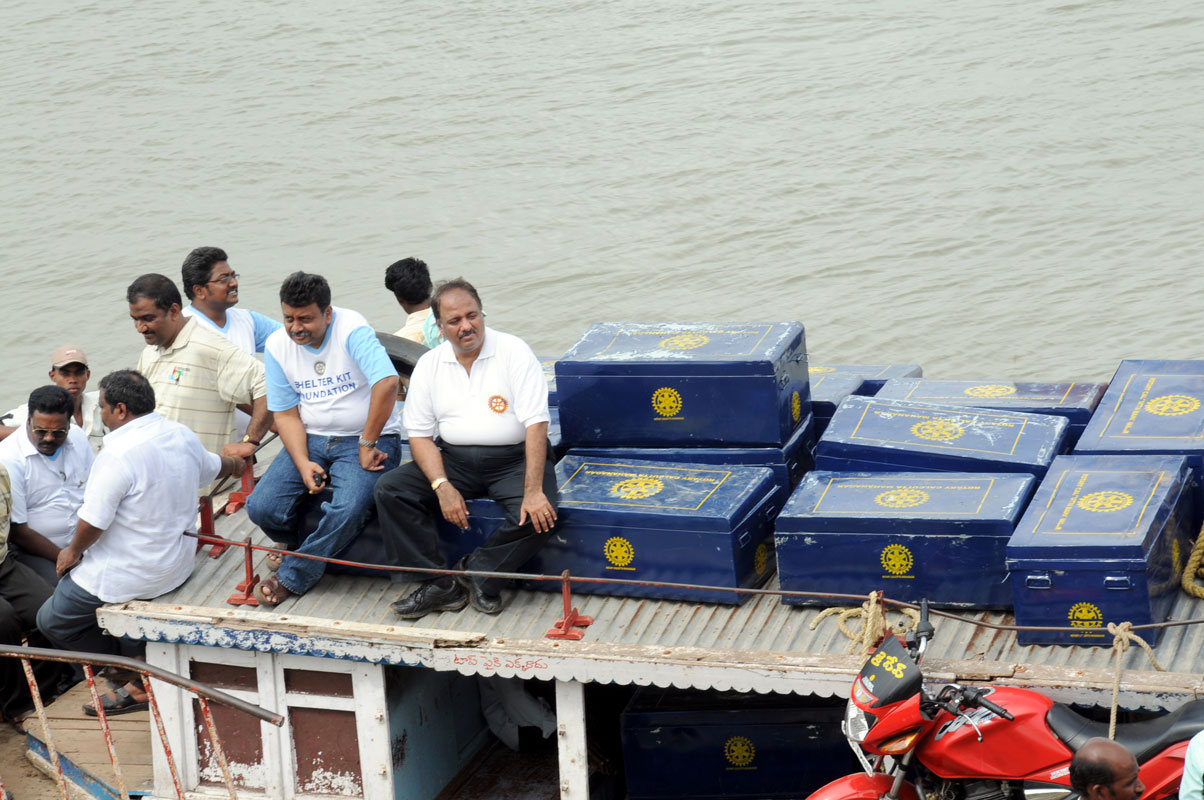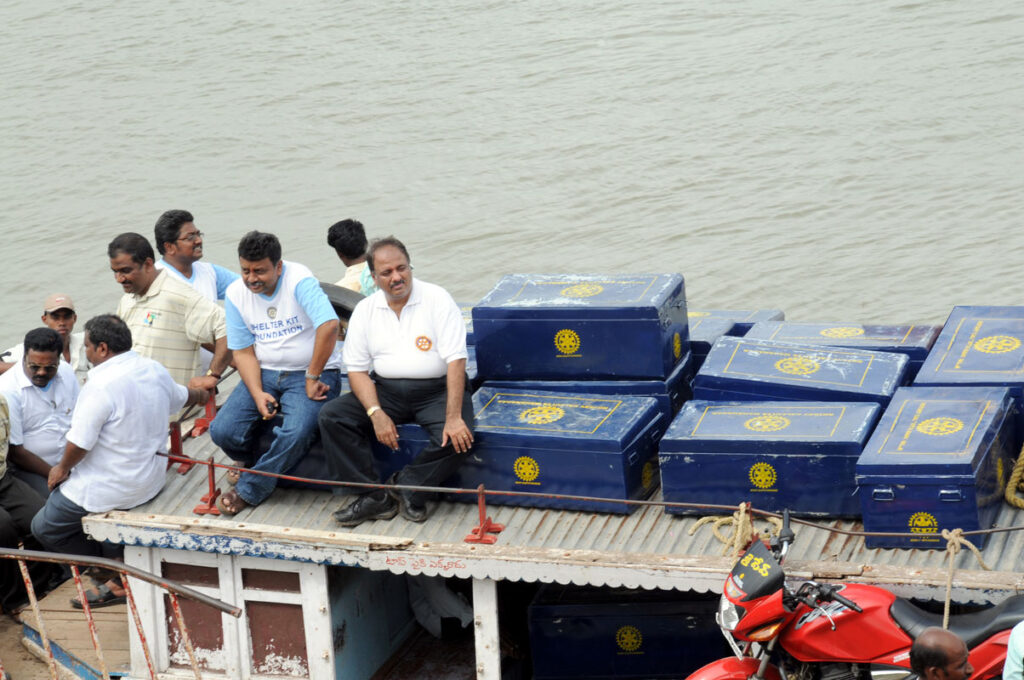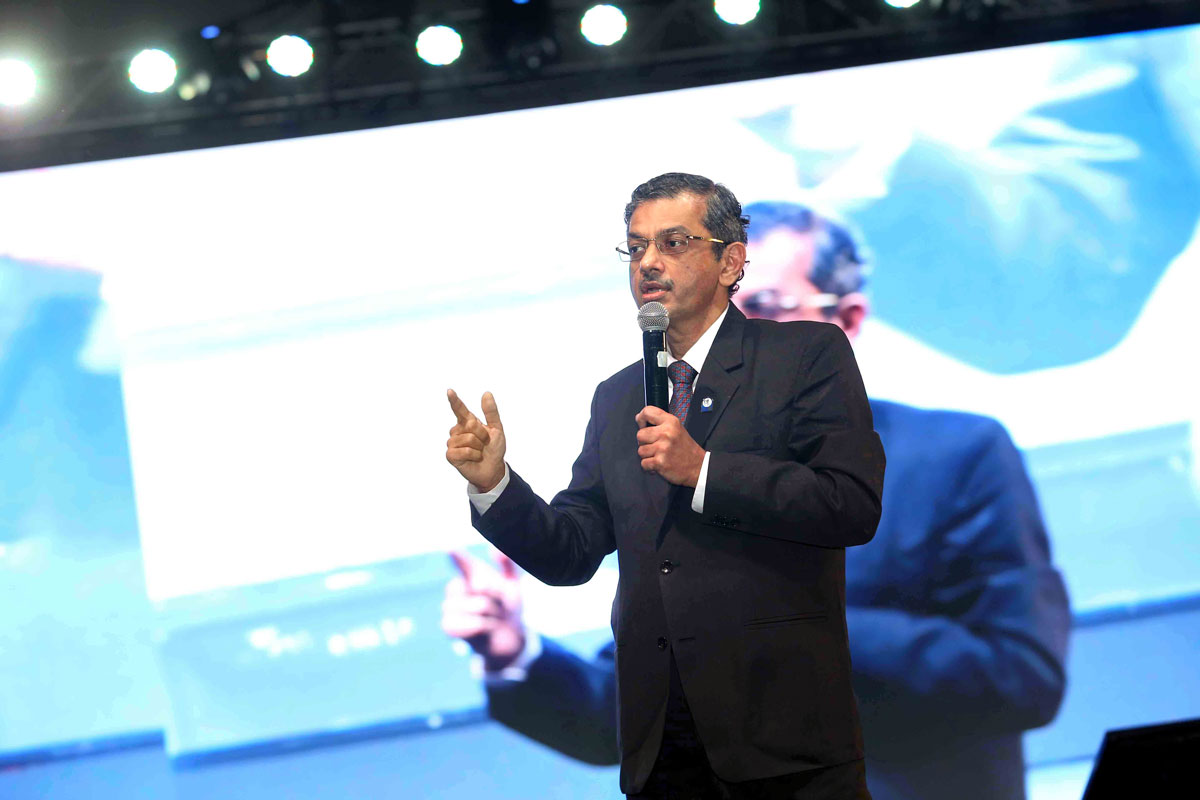
Calling Project Positive Health (PPH), a “great project,” RIPE Shekhar Mehta congratulated RID Bharat Pandya on its success. “The highest number of global grants are given for health projects. In the next five years, focus on developing and doubling these projects and at the same time raise awareness on brand Rotary.” Speaking at the health session of the goal-setting virtual session Lakshya, he said, “let’s talk about the lives we’ve changed and end with showcasing Rotary’s brand to the world.”
The data collected from health camps conducted by the clubs should be used to form partnerships with local health centres and government agencies, he said.
In his presentation, RID Bharat Pandya said, “medicine is the only profession which works day and night to decrease its clientele. The ultimate aim is to remove the need for a physician.” Being a surgeon, he always believed in curative healthcare. But PPH has made it clear that the future of healthcare lies in preventive healthcare, he said. The biggest killer he warned is “SOS — salt, oil and sugar, leading to obesity, hypertension and diabetes, which together account for the big NCDs causing 60 per cent of deaths in India.” Improper lifestyle, stress and lack of physical exercise were to be blamed, said Pandya.
Young advocates
The plan is to first conduct awareness programmes in schools as part of PPH. “We are targeting around 4,000 schools this year, and 8,000 next year to create young advocates of healthy life.” Health camps, Rotary Family Health Days, and vaccination drives for cervical cancer, rubella, and hepatitis B are also part of this mega programme. “While we are working towards TB prevention and elimination by 2030, PM Narendra Modi has a more ambitious target and wants to eliminate TB in India by 2025. Through PPH we can play a vital role in achieving this goal,” he said. On drug addiction, he said “50–60 per cent of the youth in Punjab and a few other states are affected by drugs and every 10 seconds one person dies in India because of nicotine or tobacco.” Working with the Drug De-addiction RAG could be of great help, he suggested.
Medicine is the only profession which works day and night to decrease its clientele. The ultimate aim is to remove the need for a physician.
— Bharat Pandya, RI Director
PDG Bal Inamdar pointed out that all Rotary health programmes have been “carefully selected for the next five years with two things in common — they either give life or change lives.” Some of these projects include programmes on avoidable blindness, dialysis centres, paediatric heart surgeries, mobile clinics, skin banks and organ donation.
Covid and India
Covid Vaccination Task Force chairman PRID Ashok Mahajan said, “we need volunteers who can tap into the resources of big organisations, use their infrastructure and raise funds for the cause. The Aditya Birla Group has contributed ₹15 lakh towards the vaccination drive.” Wherever there is local resistance to vaccination, he asked the DGEs to “highlight its efficacy. Our advocacy skills were proved in breaking down the resistance during our polio eradication programme. Our expertise and network in handling polio immunisation will be of immense value to the government,” he said.
There is no way we can bring back the people we lost to Covid, said Mahajan. “But we can ensure the safety of the ones who are with us by practising personal hygiene, social distancing, wearing a mask, and following WHO guidelines. It is every individual’s responsibility to stop the spread of coronavirus.” PRID Manoj Desai moderated the session.
Disaster management
PDG Kishore Kumar Cherukumalli highlighted the RRR (Rescue, Relief and Rehab) programmes for disaster management that the clubs can take up in case of a natural calamity.
Briefing the DGEs on the Shelter Kit programme, he said, “this partnership for disaster relief enables Rotarians to take action by connecting their community directly with disaster-affected communities around the world.” Adding to this suggestion, RIPE Mehta said, “with the help of shelter kits we have been able to provide emergency shelter to families who have lost their homes in natural disasters, helping them rebuild their lives.” A few DGEs offered to store the shelter kits in their industrial warehouse and others mooted the idea of creating a similar disaster-relief kit. But Mehta pointed out that to maintain quality and build a Rotary brand “a centralised approach will be appropriate.”
DGE J Sridhar, RID 3232, highlighted his district’s Rotary Ready for Rescue initiative “which aims to provide food, shelter, medicine and other necessities to disaster survivors. We have a 45-member team and a Rotary Disaster Plan and Disaster Management Fund kept aside for emergency which will enable us to sustain this project.”







